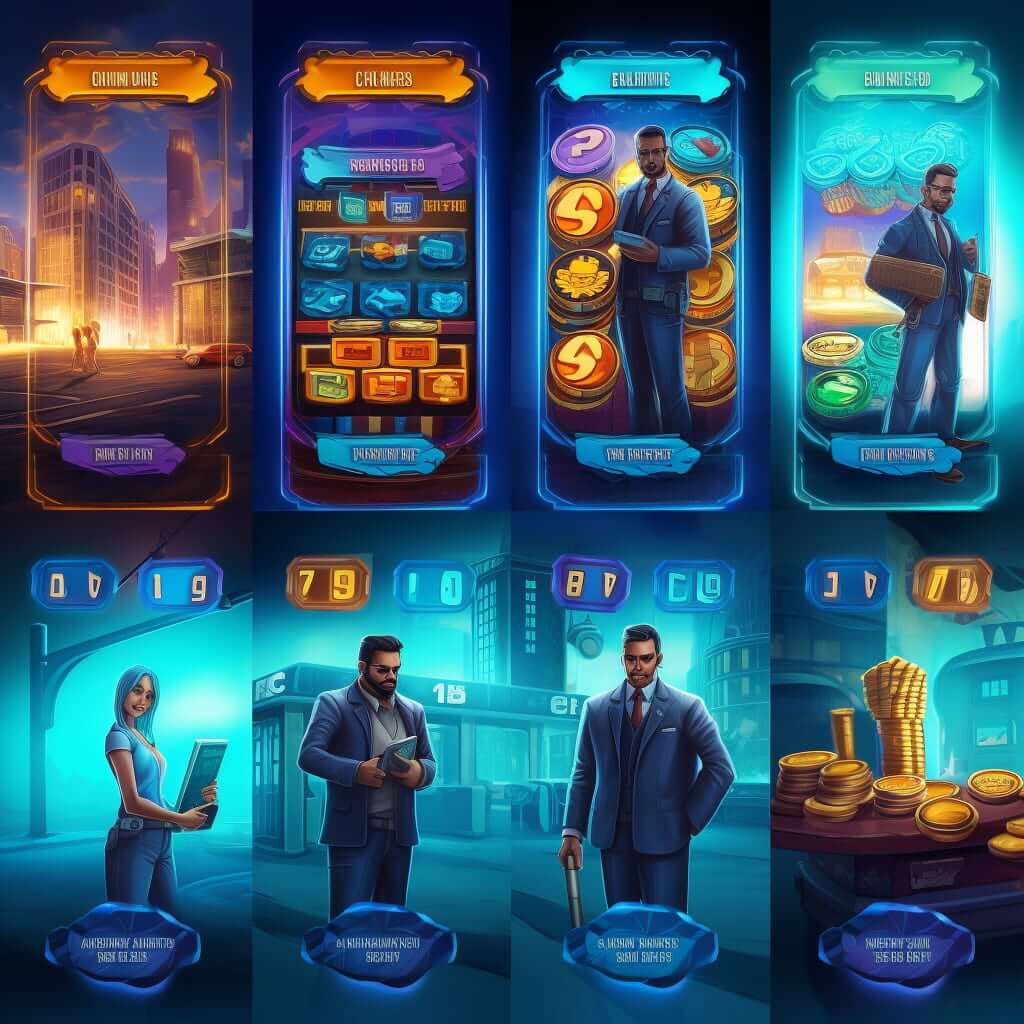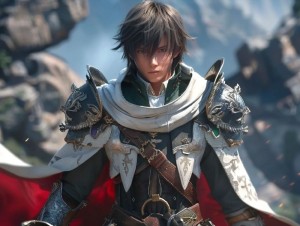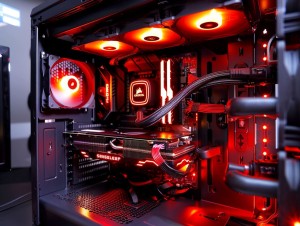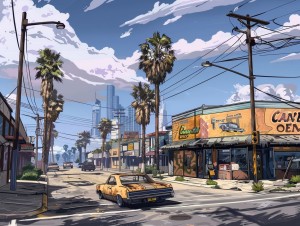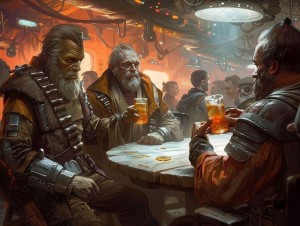NFT games have a stark advantage over centralized titles. In centralized titles, you get charged to buy in-game products. You never prove ownership. In NFT games, you can prove ownership of an in-game item, making it possible to trade them in an external market.
Traditional gaming titles are designed and maintained by centralized operators; it is, therefore, difficult to ascertain the fairness of gaming outcomes. Crypto play alleviates the challenge by using blockchain smart contracts to determine each gaming outcome. Smart Contracts are trustless, transparent, and immutable lines of code; players can rest assured that all games are 100% fair and random.
Our Cryptopolitan Best NFT Games Guide provides a bonus overview of how to get started with your first NFT game quest. To start, ensure that you enjoy playing the title in question; then, you can explore its in-game rewards.
What are NFT Games?
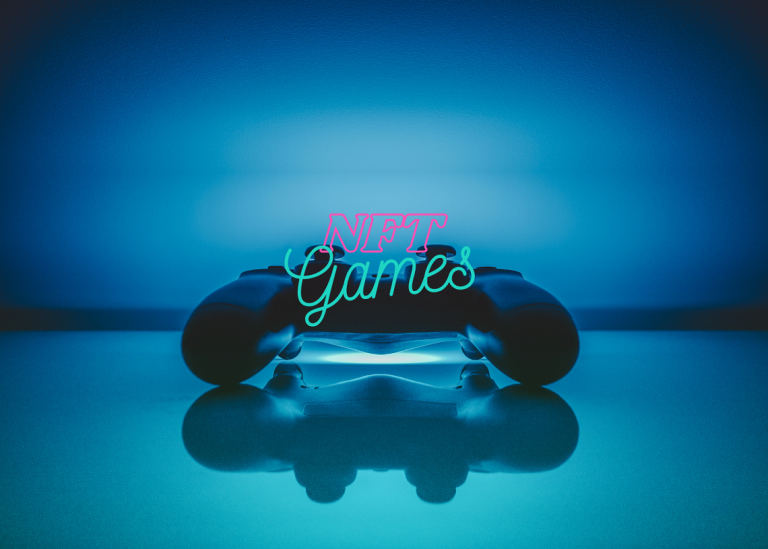
To understand what NFT games are, best to brush up on your knowledge of non-fungible tokens (NFTs). NFTs are digital assets that are unique and verifiable on the blockchain. That is to say; no two NFT tokens are the same; NFTs can be cryptographically associated with real-world items such as digital art or music, which gives them real-world value.
The potential of NFTs, gaming, and decentralized finance (Defi) are endless. For instance, the popular NFT game Decentraland allows you to buy virtual land, on which players construct real estate or develop games. Players can sell the real estate at an external NFT marketplace; Decentraland has recorded NFT sales of up to $1 million.
Gaming titles allow you to own in-game assets you can prove ownership. For instance, when you complete specific gaming tasks, such as winning a game or proceeding to the next level, you can earn rewards in the form of in-game tokens or assets. In-game NFTs are unique with different attributes or strengths; their inherent value makes it possible to trade them in NFT markets like Opensea.
Alternatively, several play-to-earn games offer NFTs representing virtual plots of land in the metaverse. These NFTs often carry the highest value due to the possibility of value addition to the plots, such as real estate development. Assets developed in virtual plots vary widely, from farms and castles to islands and live event venues.
The digital gaming landscape is undergoing a revolutionary transformation. The catalyst? NFTs – blockchain-verified digital assets that are altering the core dynamics of gaming. These tokens are crafting a space where gamers aren’t merely participants but stakeholders, holding assets that possess tangible real-world value.
Types of NFT Games
The library of NFT games is as vast as that of centralized titles; actually, the most successful NFL games are blockchain upgrades of some popular classic games. NFT games differ in terms of gameplay and type of NFTs; some of the most popular play-to-earn game types include:
- Land Ownership NFT Games
Most NFT games that fully leverage the potential of NFTs are land ownership games. Owning digital land means you can own plots in the game’s virtual world – a unique NFT represents the plot; a good example is Decentaland, where players can own and develop virtual plots of land. Other leading land ownership NFT games include Sandbox and Axie Infinity.
- Battle NFT Games
Another hot topic within the NFT gaming space is Peer vs. Peer (PVP) battle games. In PVP battles, players are pitted against each other, and the winner is awarded in-game tokens.
This NFT game will require you to develop your battle skills, strength, and power capabilities. A well-developed gaming character gives the best chance of building a good stack of gaming coins. The games often allow players to trade their in-game assets and players.
- NFT Card Games
NFT card games are very similar in gameplay to the original Pokemon series. The cards are usually NFTs representing a range of characters, each with specific strengths and weaknesses. NFTs with the most potent characteristics often have the best chance of defeating other players and are usually the most expensive.
- Animal NFT Games
Another popular sector of NFT play to earn games is titles with an animal-centric or meme focus. CryptoKitties allows you to mint and breed cats in the form of NFTs. Each animal has specific breeding characteristics that determine how much each NFL is worth in the open marketplace.
/cdn.vox-cdn.com/uploads/chorus_image/image/70685894/Starter_Axies__3_.0.png)
- Fantasy Sport NFT games
These are highly competitive sports games that are highly popular among sports fans. The games usually have tournaments where skill determines the winners. Examples of these games include Sorare and Silk horses.
Top NFT Games
With the rise of blockchain technology and the widespread adoption of NFTs in various sectors, the gaming industry has seen a proliferation of titles seamlessly merging digital gaming and decentralized finance. Gameplay dynamics have evolved as players become more than participants, stakeholders, and investors. Here, we delve into some of the most prominent NFT games that are setting benchmarks in this rapidly evolving space.
Alien Worlds
Alien Worlds is a metaverse that its community has constructed. It’s a game where players, known as Explorers, can collaborate to gather NFTs and compete for a resource called Trillium. The game is set in a universe with six governing bodies, seven planets, and many NFTs to amass.
The game involves collecting and trading unique digital assets, primarily minted on the WAX blockchain. Players strive to earn the in-game currency, Trillium (TLM), essential for gaining control over one of the six competing governing bodies.
Alien Worlds is also a decentralized finance non-fungible token (DeFi NFT) Metaverse. Here, players can accumulate Trilium, participate in interstellar quests, and acquire unique items by exploring the various planets across the belt.
Furthermore, Alien Worlds is an NFT game centered around space exploration. Players can journey through space wormholes to distant exoplanets and gather NFTs. They can lease spacecraft and send them on missions and expeditions across this expansive metaverse.
Gods Unchained
Gods Unchained is a digital card game that operates on the Ethereum blockchain. It’s a free game, giving players genuine ownership of their collections. Players can retain their winnings or trade them on open marketplaces.
James and Robbie Ferguson established the game in 2018 and operate on Immutable X, a secondary blockchain for the Ethereum network. This network enhances Gods Unchained’s gas-free feature, making the game more accessible to players.
In Gods Unchained, players embark on a journey to liberate the six gods defeated and imprisoned by the Titans. They utilize potent magic to wage war against the Titans to free the captive gods and humanity. The powerful spell required for this conquest is from the digital cards in the ecosystem.
Players must purchase, construct, and collect cards that they will use to form their decks and compete against other players. All cards and other in-game collectibles or items in the Gods Unchained ecosystem adhere to the ERC-721 token standard.
Moreover, all NFTs earned from Gods Unchained are added to players’ collections, where they can be used to enhance the gaming experience, sold on marketplaces like OpenSea and Rarible, or exchanged for $GODS, the Gods Unchained native crypto token.
The Sandbox
The Sandbox is a genre of video games that provides players with a high level of creativity and freedom to interact with the game environment. These games typically lack set goals, allowing players to establish their objectives.
From the game development perspective, the Sandbox integrates elements of sandbox design, including various game systems promoting free play. Sandbox design can refer to either a game or a game mode, emphasizing free-form gameplay, relaxed rules, and minimal objectives.
Sandbox games have an open-world concept, which grants players freedom of movement and progression in the game’s environment. The term “sandbox” originates from the nature of a sandbox that allows players to create almost anything they want within it.
Unlike progression-style games, the Sandbox emphasizes exploration and allows gamers to choose tasks. Rather than featuring segmented areas or numbered levels, a sandbox game typically takes place in a “world” that the gamer can access from beginning to end.
The Sandbox can incorporate structured elements such as mini-games, tasks, submissions, and storylines, which gamers may disregard. Despite their name, various sandbox games continue to impose restrictions at certain stages of the game environment due to the game’s design or short-run in-game limitations.
Splinterlands
Splinterlands is a digital card game that operates online and leverages blockchain technology, with cards owned as NFTs. It was initiated in the middle of 2018 and is reportedly the first NFT trading card game.
In Splinterlands, players own their cards and other in-game assets. Each card in Splinterlands is an NFT a player owns. The game functions on the Hive blockchain.
Players compete against other players using cards. The game features over 500 cards, and each battle has a unique combination of combat rules, total Mana cap, and playable Elements. Strategy is crucial in assembling the best team for the given situation.
Players can merge cards to gain levels, convert to crypto, trade with anyone, sell on multiple platforms, or rent to other players. Players can win real money in the game through tournaments, ranked play, and quests. Regardless of your skill level or collection size, there is always an opportunity to earn.
Sorare
Sorare is a fantasy sports game where you can gather and compete with digital player cards that you own, with the chance to win fantastic prizes. It’s fundamentally a fantasy game, but instead of merely selecting player names from a list during a draft, you acquire digital trading cards tokenized on the Ethereum blockchain.
In Sorare, players assemble and manage virtual teams with digital player cards. Some cards are digital collectibles (limited, rare, super-rare, and unique). These cards are NFTs.
You can participate in fantasy leagues with your lineups to win rewards and buy and sell the in-game cards. The game provides several different leagues you can join, including a rookie league for beginners, specific regional leagues, and even one exclusively for lineups with young players no older than 23.
Once you become a part of a league, you can establish a new lineup each play week using the cards in your account. The in-game points are calculated based on the players’ real-world performances, and the Sorare users with the most points can win amounts of ETH and rare cards as rewards.
Regardless of your position in Sorare, you indefinitely retain ownership of your cards.
The Walking Dead: Empires
The Walking Dead: Empires is a multiplayer survival game that plunges players into the dangerous and unpredictable world of AMC’s The Walking Dead. It’s a blockchain-based survival MMORPG that introduces a blockchain-based zombie survival game in AMC’s universe, merging NFTs with MMORPG mechanics.
Players traverse a post-apocalyptic world in this game, combating the undead and crafting essentials, while unique NFTs possess real-world value. Players are required to collect resources and build a haven amidst the chaos. They can search for supplies, construct their new home, collaborate with allies, compete against adversaries, and always be wary of the dead.
Furthermore, your characters, weapons, health kits, lands, and so on are unique tokens that hold value in and out of the game, being able to be sold on secondary marketplaces.
The Parallel
The Parallel is an infinite metaverse that provides limitless gaming, entertaining, and social experiences. It’s a blockchain-based survival MMORPG that introduces a blockchain-based game in a universe, merging NFTs with MMORPG mechanics.
In The Parallel, players can enjoy, play, and create together. The game functions on the Ethereum blockchain and introduces the concept of Creative-to-earn with limitless earning potential.
The first game of The Parallel is called Ascension. Players can participate in The Parallel Metaverse with an NFT character named Paragon. Paragon has its power and values determined by the Runes’ power.
The Parallel aims to be a gaming platform offering users extensive gaming experiences. It represents a convergence of traditional trading card game mechanics and modern digital gaming innovations, set amidst a narrative backdrop of interstellar travel and societal evolution.
At the heart of the game are the Parallel NFTs, an expanding collection of digital assets that reflect the game’s central factions, known as “Parallels.” These digital assets form the basis of the gameplay, with players assembling and deploying decks composed of these NFTs to compete against one another.
Illuvium
Illuvium is a game that merges blockchain technology, NFTs, and RPG elements. It’s a game where players traverse an open world, gather and battle mythical creatures known as Illuvials, and earn rewards in crypto tokens and NFTs.
The game is constructed on the Ethereum blockchain and utilizes Immutable X, a layer two network that enables transactions free of gas and scalability. It boasts stunning graphics and immersive gameplay on par with a commercial-grade video game.
There are over 100 Illuvials to discover and collect in the game, each possessing unique abilities. Players can fuse Illuvials to create more powerful versions or trade them on the open market.
Illuvium is a play-to-win game where players can earn rewards such as ETH and rare NFTs by participating in tournaments, quests, and ranked play.
CryptoBlades
CryptoBlades is a blockchain-based NFT game that incorporates elements of traditional RPG gameplay. In this fantasy world, players control a fictional character and can earn SKILL tokens by defeating enemies, crafting weapons, participating in raids, trading on the marketplace, and staking their gains.
The game operates on the BNB Chain blockchain and utilizes ApeSwap, a decentralized exchange platform, to swap BNB for SKILL. It features retro-style graphics and simple gameplay reminiscent of classic RPG games.
CryptoBlades boasts over 500 weapons and four elements (fire, earth, lightning, and water) influencing combat outcomes. Players can fuse weapons to create more powerful ones or trade them with other players on the proprietary marketplace.
CryptoBlades is a play-to-win game where players can earn rewards through SKILL tokens and rare NFTs by participating in tournaments, quests, and ranked play.
NFT games are rapidly becoming the new standard in digital entertainment, blending rich storytelling with the tangible benefits of blockchain. They offer immersive experiences with an added twist: the potential for real-world returns. It’s an era where gameplay isn’t just for leisure; it’s an investment, an opportunity, and a revolution in how we perceive online gaming.
The Future of NFT Gaming
Gaming has always embraced transformation, pushing boundaries with each tech advancement. Yet, the fusion of NFTs and gaming is one of the most seismic shifts we’ve witnessed. Here’s a glimpse into the future of NFT gaming, uncovering the potential milestones and challenges.
- A New Era for Indie Developers
The NFT realm is poised to change the game for independent creators. As players acquire and trade in-game assets, funding can flow directly to these developers. This fresh financial model may disrupt the status quo, fostering a more prosperous and diverse gaming landscape.
- A Shift in Player Dynamics
Gone are the days when gamers were merely end-users. With NFTs in the picture, they will become stakeholders with tangible assets in their digital arsenal. This evolution in player dynamics underscores a future where in-game milestones resonate beyond the screen.
- Metaverse Mergers
As digital universes or metaverses become the next big thing, expect NFT games to weave seamlessly into these vast digital landscapes. It’s not just about playing a game; it’s about living and prospering in expansive online realms.
- Broadening Horizons and Game Genres
With the increasing popularity of NFTs, a wave of conventional gamers may soon flood the NFT space. This influx will likely birth innovative genres tailored to balance entertainment and tangible digital asset interactions.
- Evolution of Economic Strategies and Play-to-Profit Models
The current play-to-earn success stories are an early glimpse into the future. As the sector matures, anticipate intricate economic systems where gamers can strategize, earn, and trade groundbreakingly.
- Green Gaming and Fair Play
The road ahead has its challenges. With concerns about the ecological impact of blockchains, the gaming industry will need to pivot towards environmentally-friendly solutions. Furthermore, maintaining a level playing field and curbing asset monopolies will be crucial.
- Cross-Gaming Alliances and Universal Asset Recognition
Imagine a world where games intertwine, where an asset from one universe finds relevance in another. Such interoperability can redefine player experiences, with assets gaining recognition across diverse gaming ecosystems.
The potential of NFT gaming is expansive, but it’s also a realm that demands prudence. As developers, players, and stakeholders steer this ship into the future, innovation, inclusivity, and a sustainable vision should be the guiding stars.
Risks and Considerations
The digital revolution of NFT gaming has redefined the frontiers of online entertainment, bestowing players with unique ownership and prospective monetary gains. Yet, every silver lining has its cloud. Let’s traverse the complexities of NFT gaming, shedding light on its potential pitfalls and the precautions one must take.
- Turbulent Market Trends
Much like its cryptocurrency cousins, NFT values can ebb and flow dramatically. Understanding that today’s prized asset might wane in value tomorrow is critical for players and stakeholders eyeing this space. Prudent investment and comprehensive research are the order of the day.
- Eco-conscious Gaming
Some blockchain models, particularly those based on proof-of-work algorithms, are energy-intensive. As the limelight on NFT gaming intensifies, so does its ecological footprint. The call to action? Championing sustainable alternatives for a greener gaming future.
- Legal Labyrinths
The regulatory waters around NFTs remain murky. Issues ranging from asset ownership rights to taxation loom large. Such legislative gray areas pose challenges, potentially reshaping the NFT gaming tapestry in unforeseen ways.
- Beware the Digital Mirage
The allure of NFT gaming, unfortunately, beckons nefarious elements. Counterfeit NFTs, sham platforms, and deceptive schemes are pitfalls one must guard against. Always prioritize trusted sources and stay alert to dodge digital deception.
- Tech Glitches and Goofs
NFT transactions often hinge on smart contracts. But even these sophisticated agreements can falter, courtesy of bugs or vulnerabilities. A glitch in the matrix could spell losses, underscoring the importance of robust tech infrastructures.
- The Speculation Spectrum
The buzz around NFT gaming fuels speculation, potentially inflating a bubble. If this speculative bubble bursts, the ripple effects could dampen spirits across the gaming community, from casual players to seasoned developers.
- Gaming Ethics in the Spotlight
While the Play-to-Earn paradigm is a game-changer, it also poses questions. When profit drives play, does it eclipse the essence of gaming? Striking a balance to ensure equitable play, irrespective of financial might, is paramount.
Embarking on the NFT gaming odyssey demands discernment. While the vistas are exhilarating, one must tread with informed caution. Fostering a milieu of clarity, ongoing learning, and ethical integrity will ensure this digital domain thrives sustainably.
How to make money on NFT games
Many NFT games have their native currencies available on cryptocurrency exchanges enabling players to swap their tokens for other crypto or cash them out into fiat currency. The inherent value of in-game NFTs is one primary reason why play-to-earn games have become so popular.
The second way you can make money in a crypto play-to-earn game is by minting and trading unique NFTs. When you obtain an NFT representing valuable in-game items, trading can be highly profitable. For instance, you might play a racing game that requires you to defeat other players; obtaining a car NFT with the highest speed and power will likely carry an attractive value in the open marketplace.
Conclusion
The digital realm of NFT gaming stands at an intriguing crossroads, melding traditional gameplay with the tangible rewards of digital asset ownership. This fusion has unlocked pathways for enthusiasts, creators, and pioneers, reshaping the contours of online gaming. However, like all disruptive innovations, this journey has its share of ebbs and flows, calling for a judicious mix of passion, vigilance, and strategic insight.
Adaptability will be essential as we peer into what lies ahead for NFT gaming. Continuous learning, anticipating market shifts, and championing ethical and green gaming practices are vital for those charting their course in this electrifying space. By anchoring these principles, we can ensure that NFT gaming transcends beyond being a mere buzzword, firmly establishing itself as an enduring pillar of the digital entertainment ecosystem.
